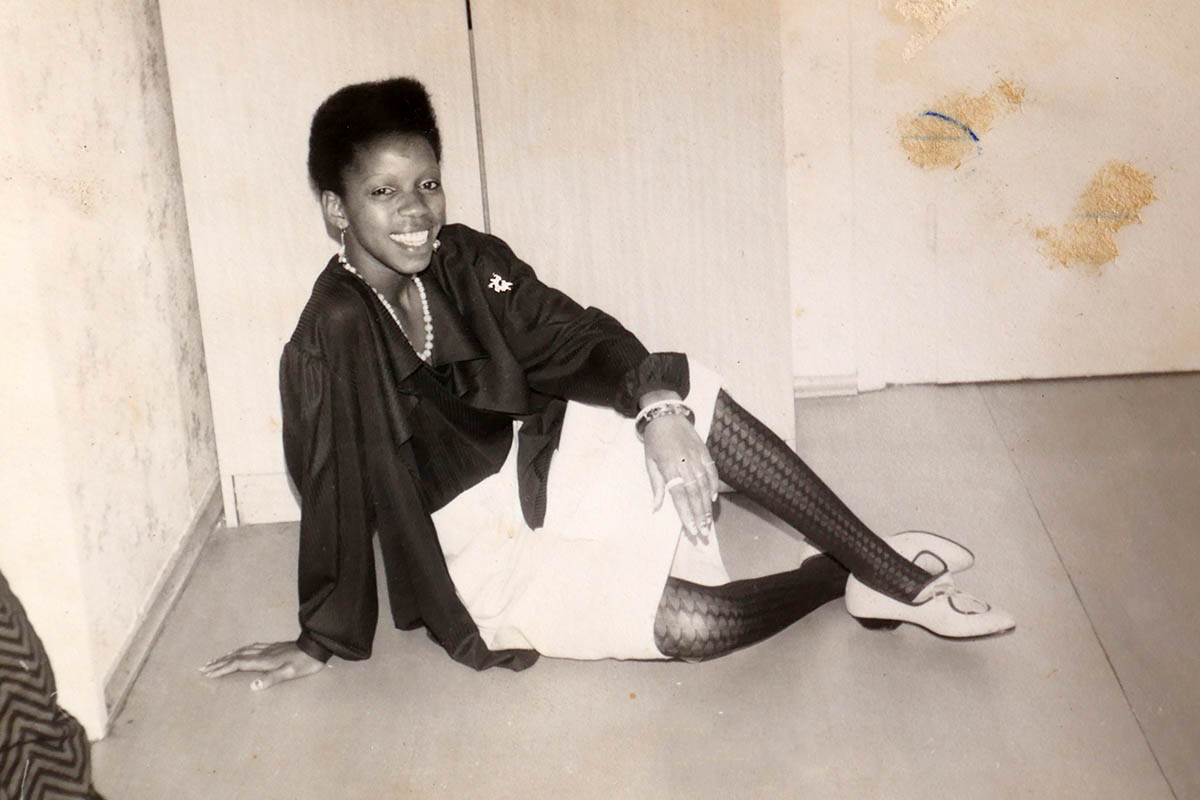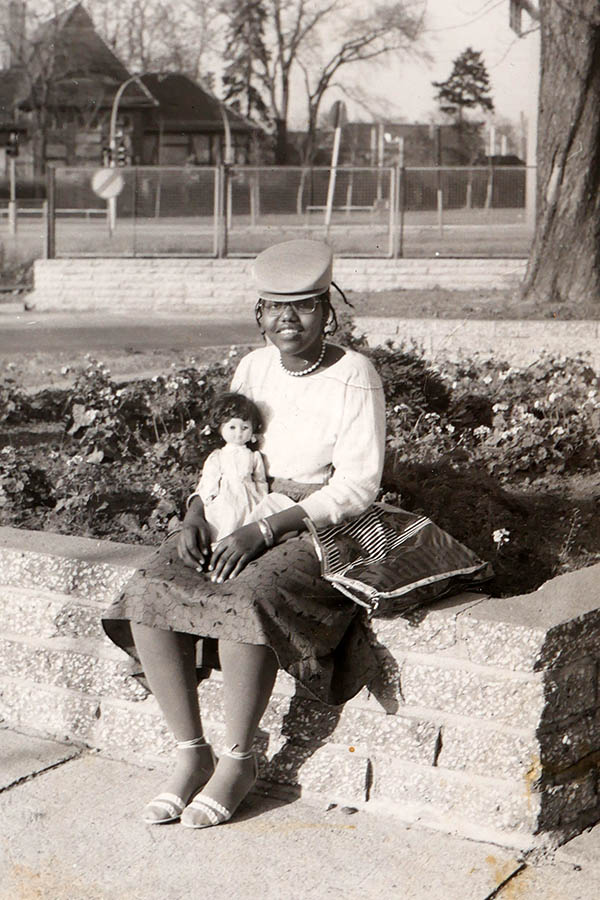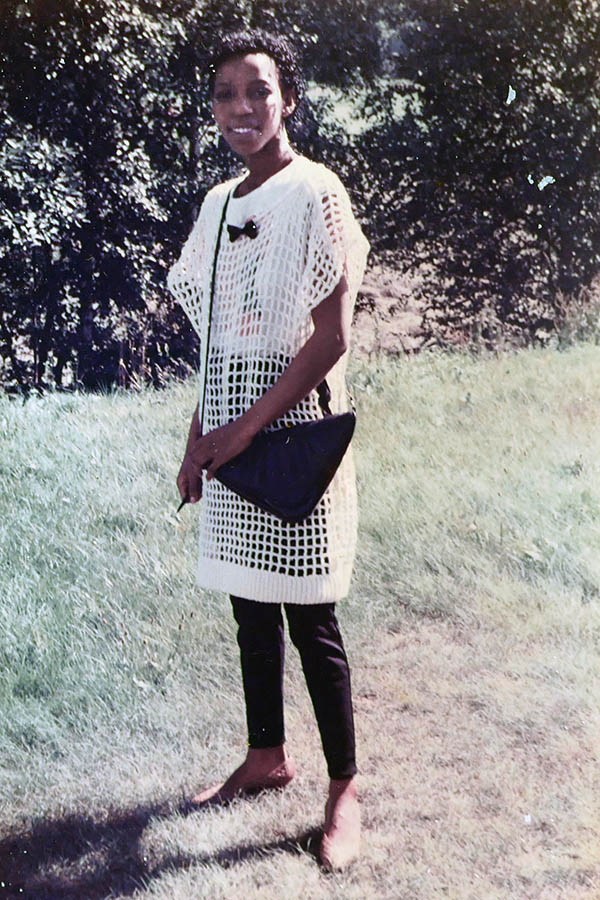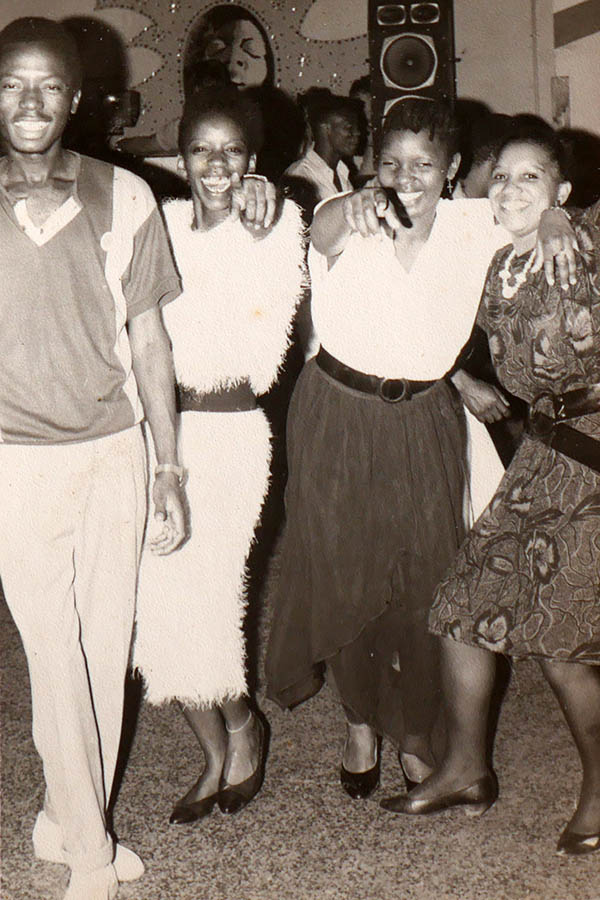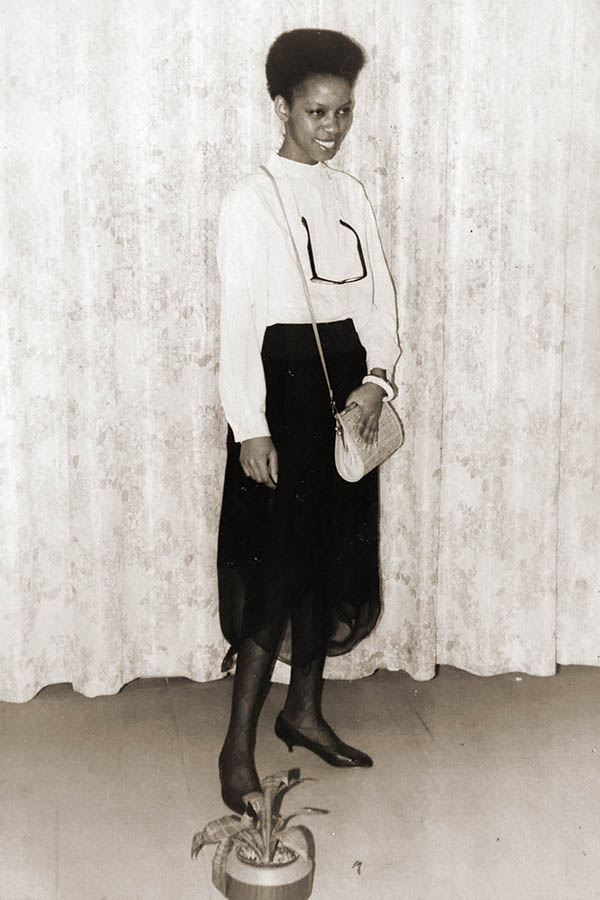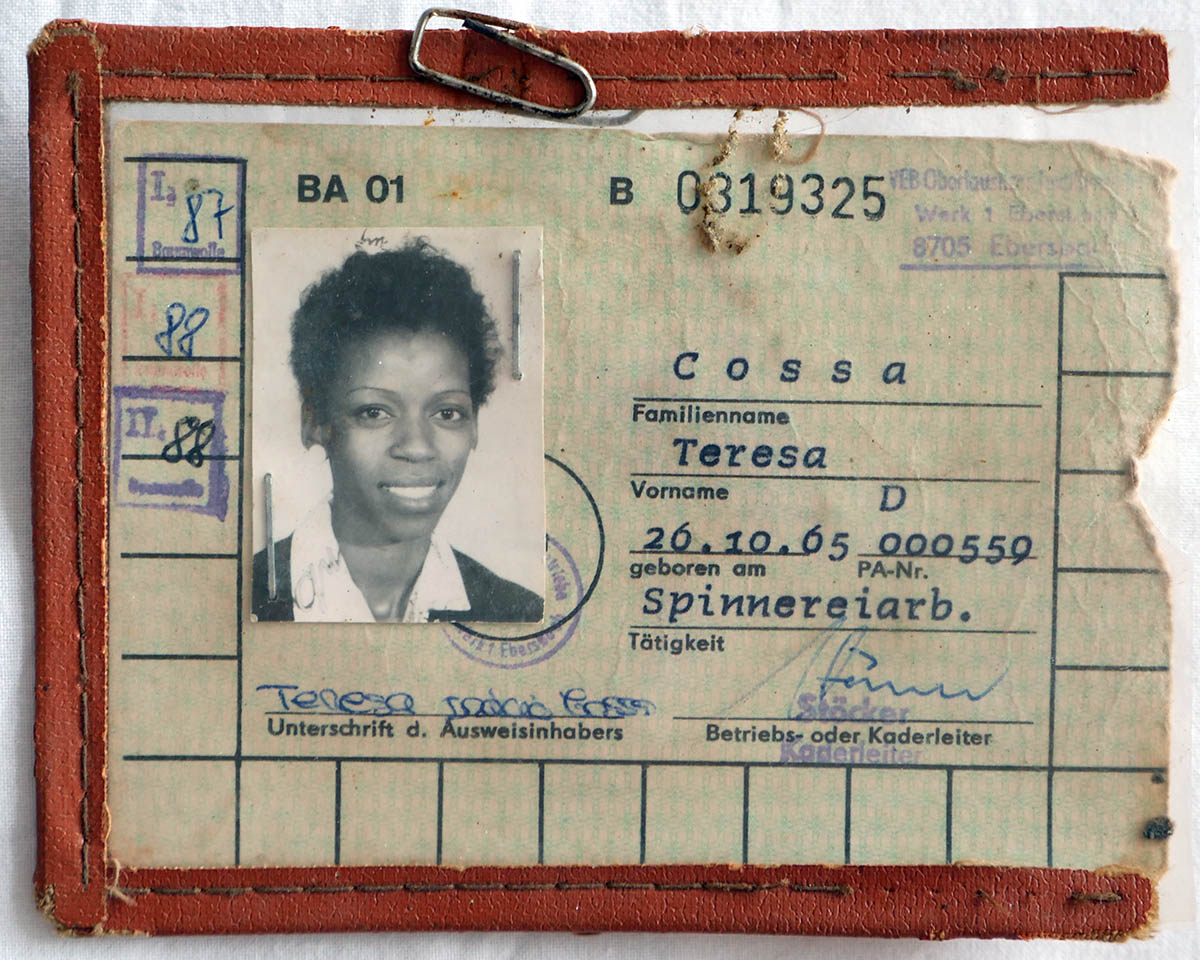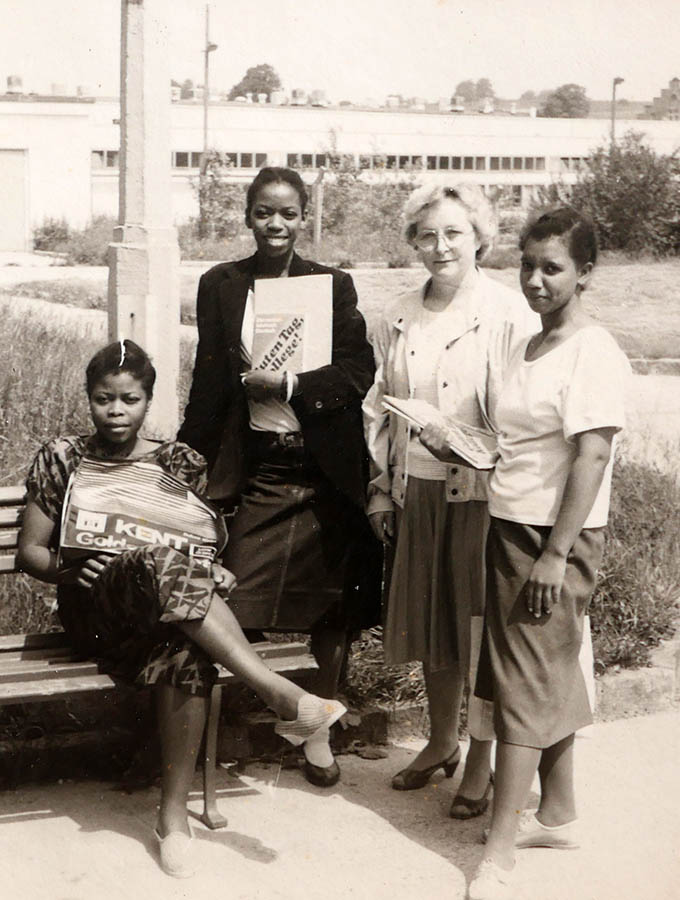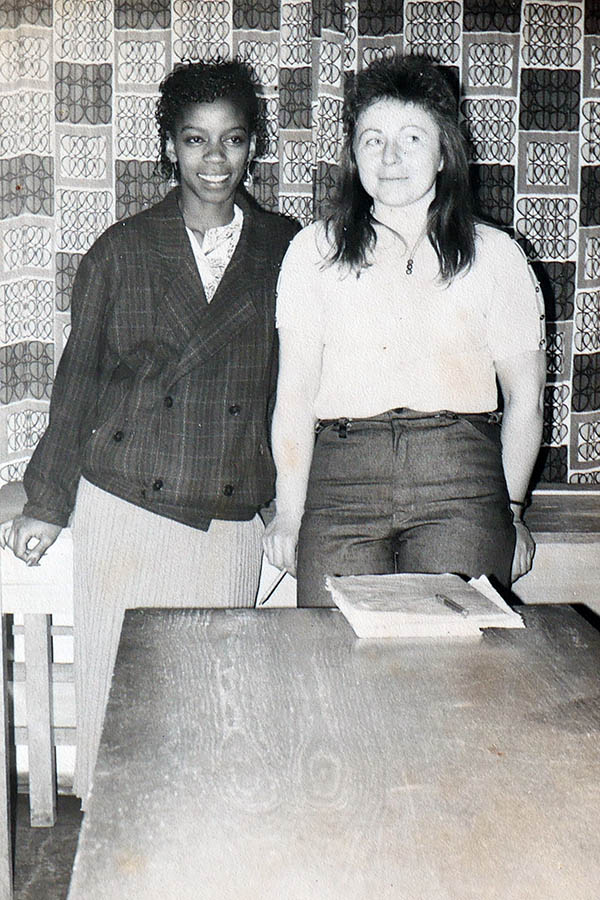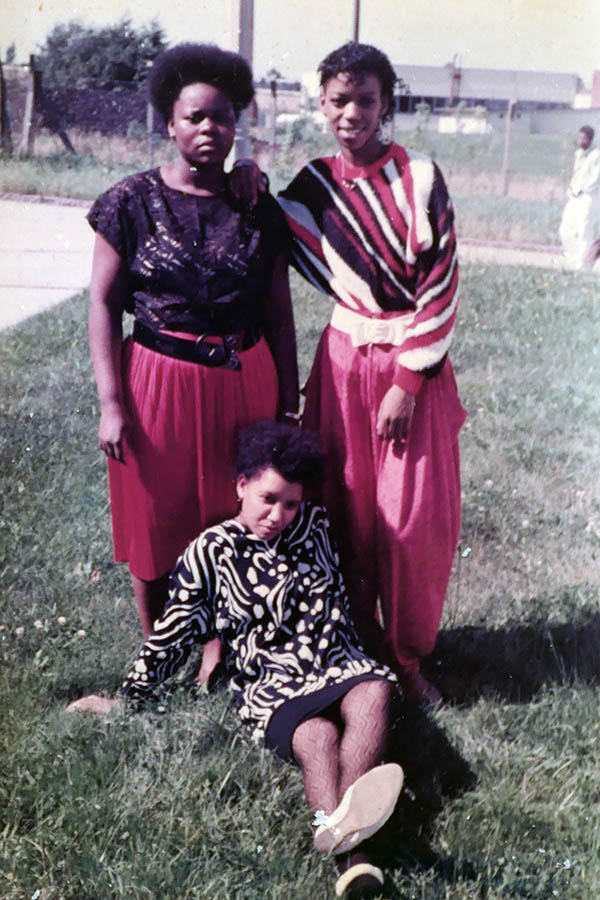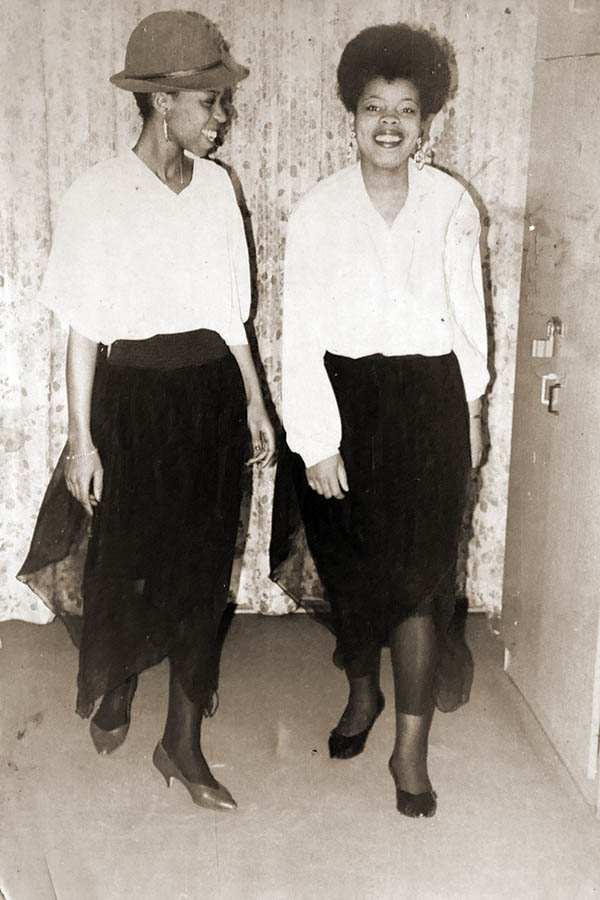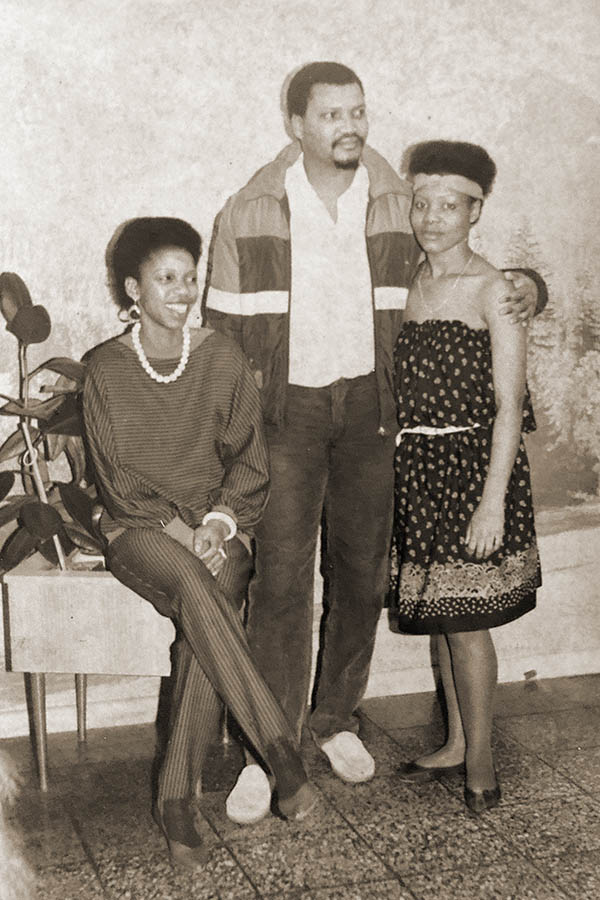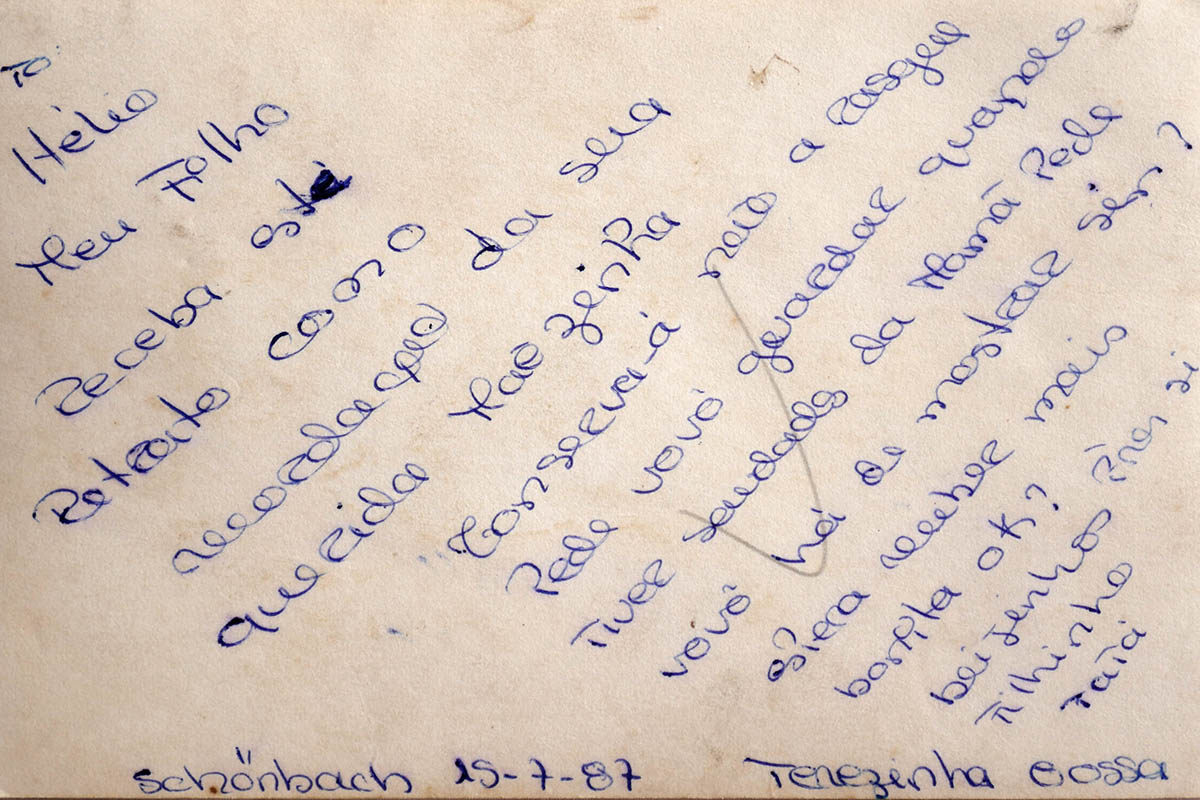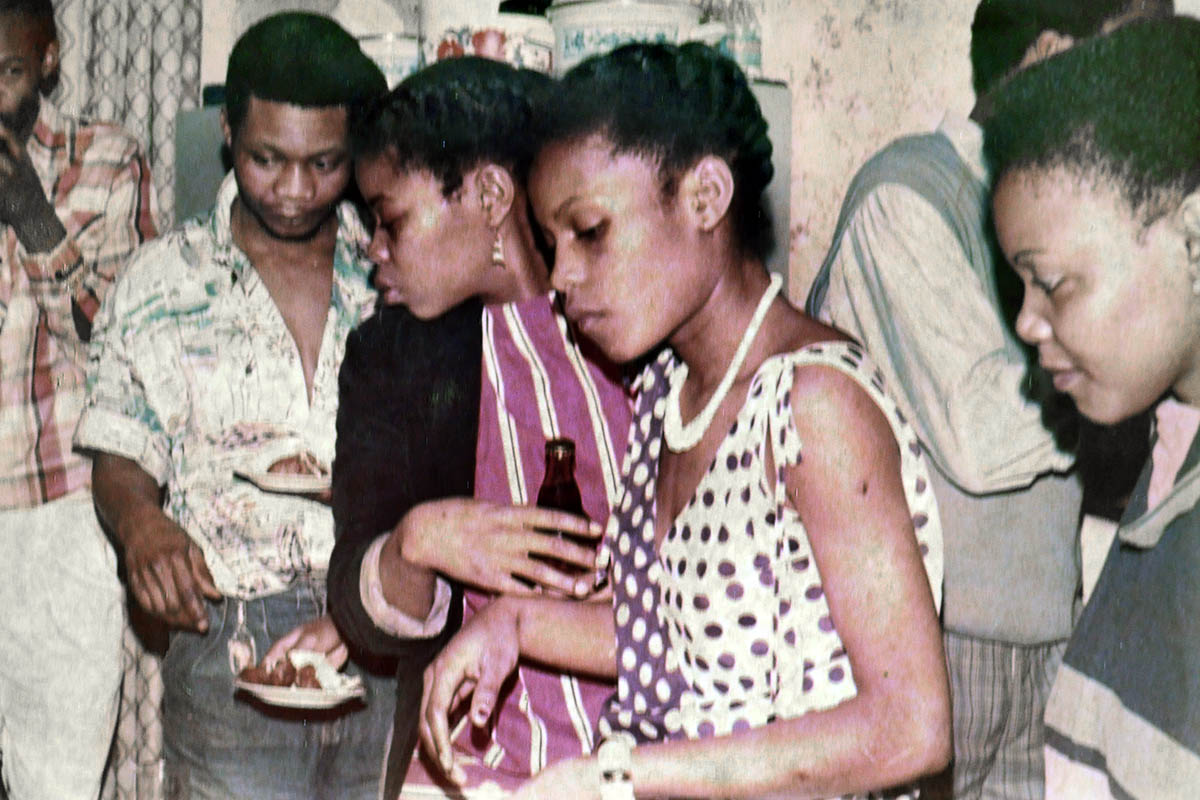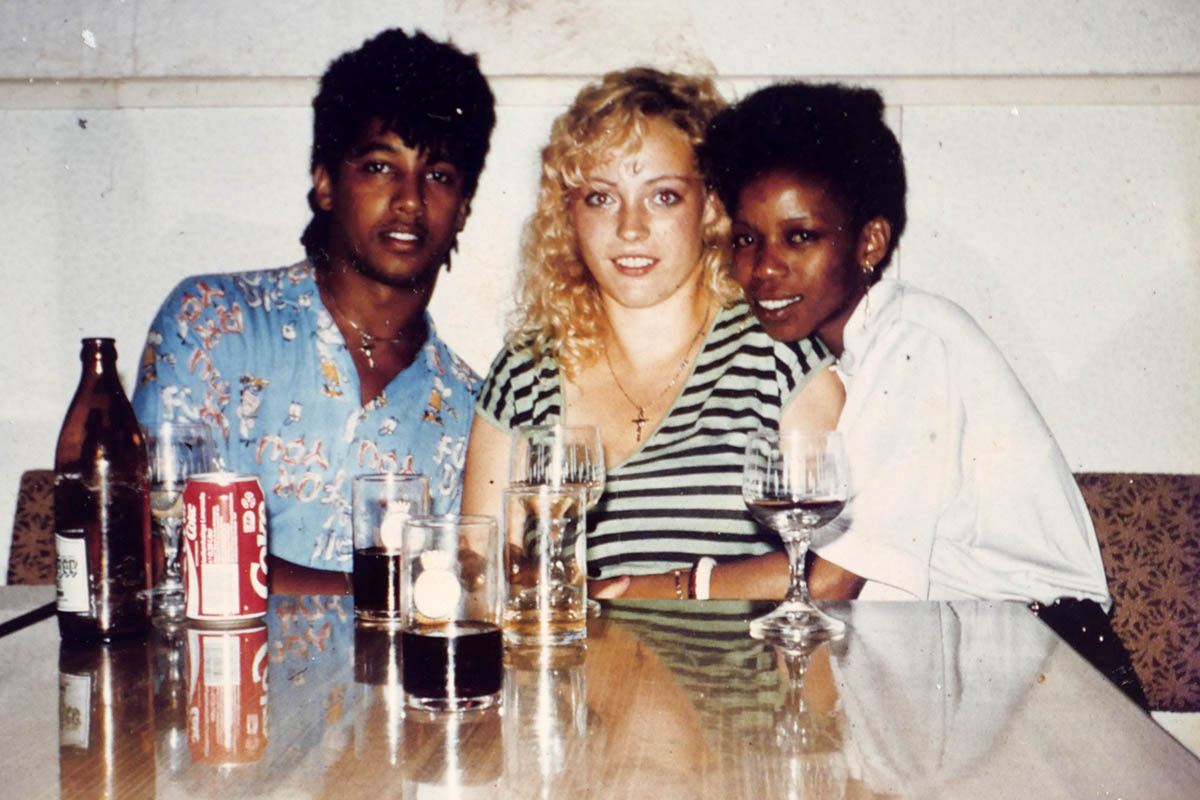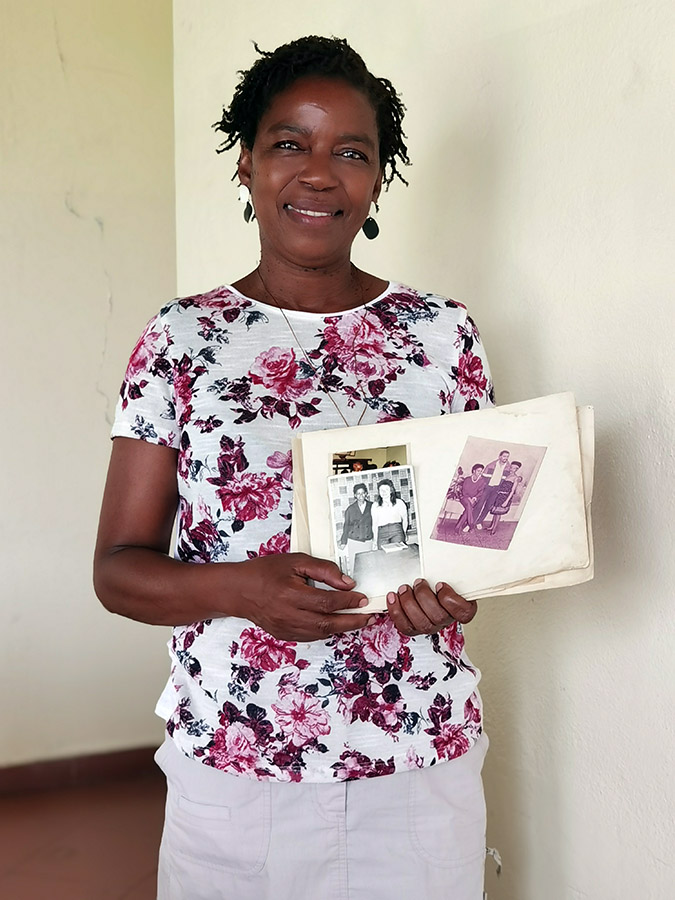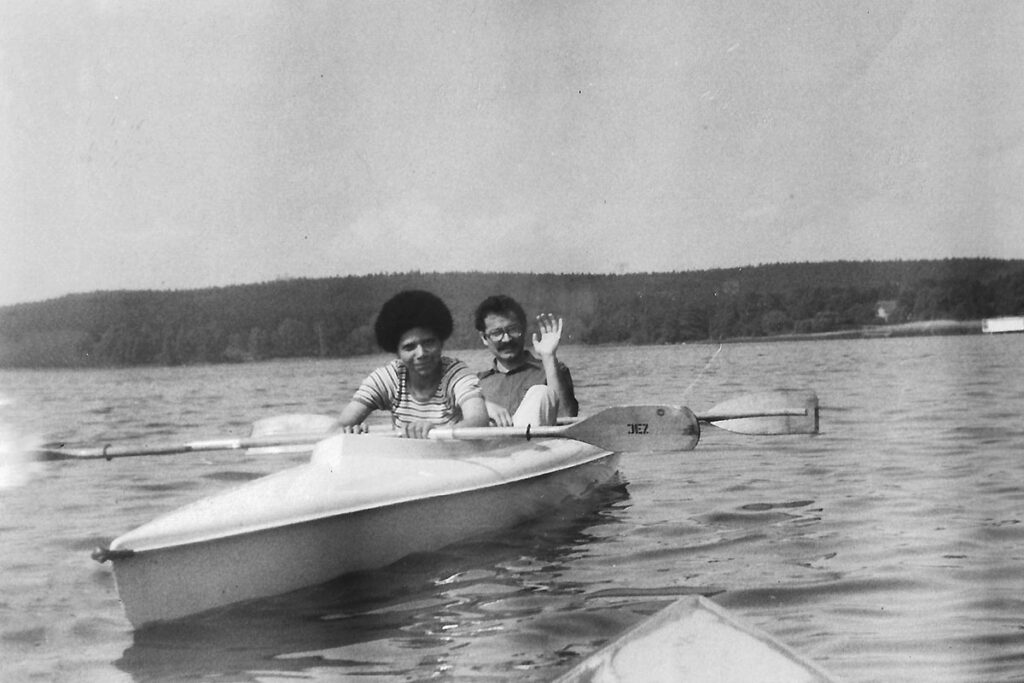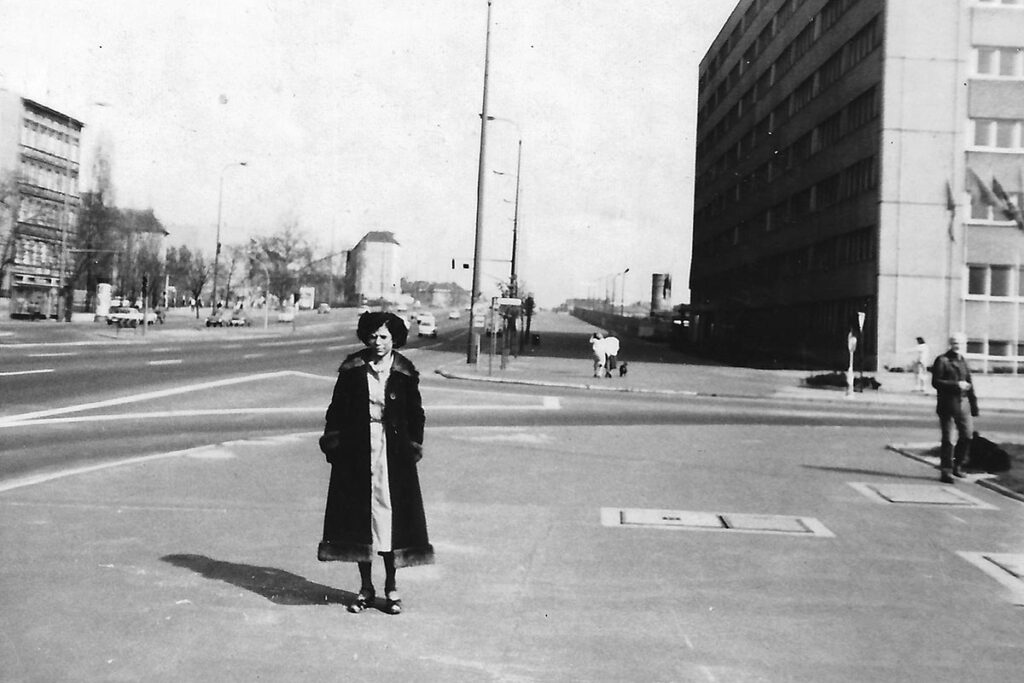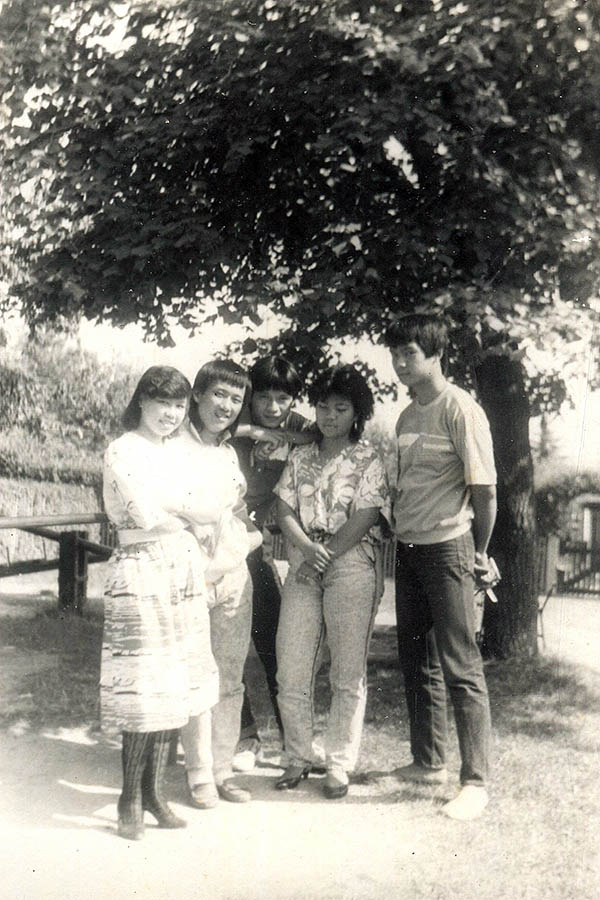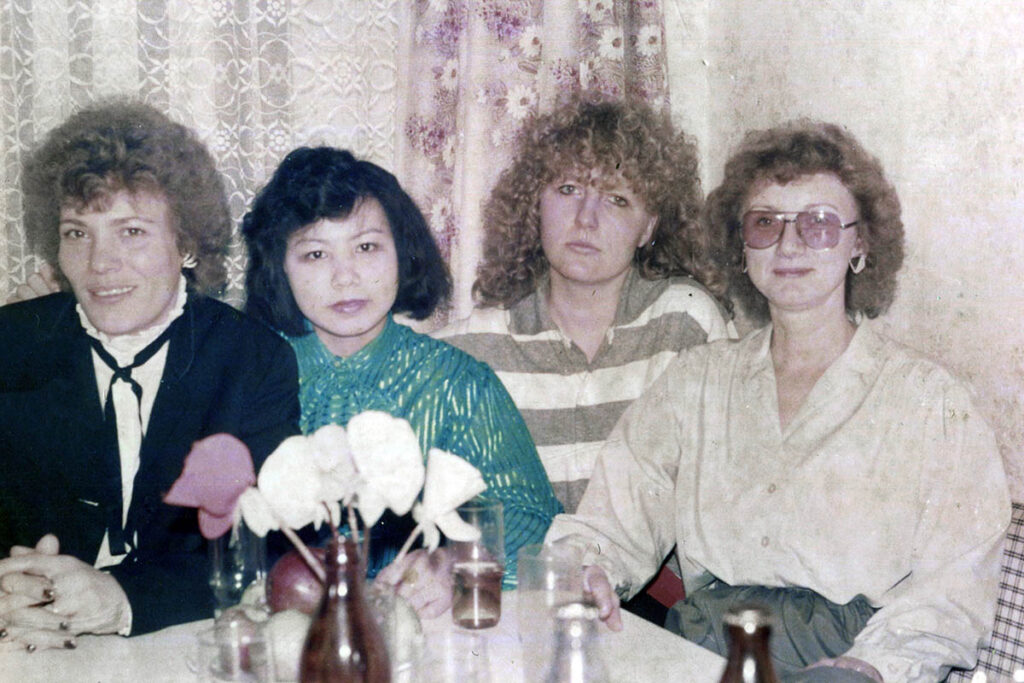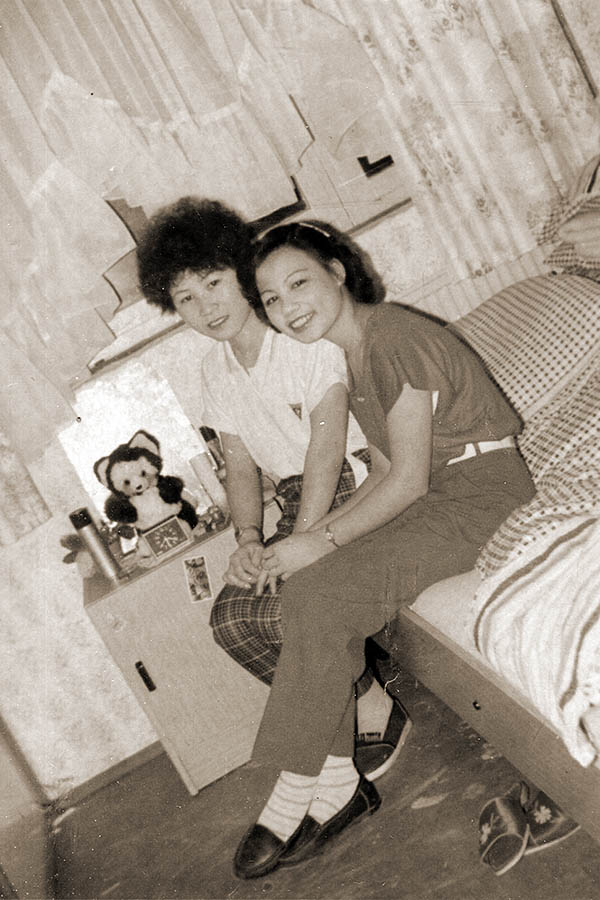Teresa Cossa
Teresa Inácio Cossa is 22 years old when she leaves Mozambique in 1987 and comes as a contract worker to the GDR. Her five-year-old son is left in the care of her parents. One of her cousins is already working in Berlin. She encourages Teresa in taking this step. Teresa wants to earn money in Germany to create a future for herself and her son.
Cotton and dust
Teresa Cossa is sent to work in the VEB Spinnerei und Weberei (Spinning and Weaving Mill) Ebersbach near Görlitz. The residential home for the contract workers is located a few kilometers away in Schönbach. By this time, the preparatory German lessons for new contract workers only last three months, because the East German plants desperately need workers. In addition to the work, the training of the young migrants takes place after hours. Teresa is very quickly placed in production.
Her first workplace is directly in the spinning mill and very dusty. She constantly suffers from sinusitis and has problems with her breathing. After a few weeks, she is transferred to a less dusty section.
Saudade
Teresa terribly misses her son. When she left Mozambique, the civil war was already raging.[1] The rebels likewise terrorize the civilian population. Several times, Teresa’s parents are forced to flee with the child from the attackers. During this time, she finds help and comfort in her Mozambican colleagues. Three of them share a room in the residential home. They all work the same shift at the same plant. At five in the morning, a bus comes to pick up the workers for the early shift; the late shift ends at 10 pm.
Extra shifts
Teresa wants to save money, and so she takes on extra shifts whenever possible. In the GDR she is only paid forty percent of her wages, but that doesn’t bother her. Her superiors claim that the money is paid into an account for her in Mozambique, which she will receive upon her return. She works as much as she can, even on weekends as a harvest helper on a farm. All the while, she has her future in Mozambique in mind.
In the community kitchen
There is a communal kitchen on each floor of the residential home. When it comes to cooking, the Mozambicans must adjust their diet. Many ingredients are not available in the GDR: fresh fish is rare, meat is mostly pork, and tropical fruits are limited. Of the latter they have already eaten enough at home, they are told in the supermarket. Teresa and her friends improvise with cabbage and lamb.
They said bananas are for German.
Teresa Cossa, Maputo 2021
Teresa spends her spare time with other contract workers. Frequently, parties are organized in the residential home or birthdays celebrated. Sometimes Teresa also visits her cousin in Berlin.
Vorzeitige Ausreise
With the end of the GDR in 1990, Teresa Cossa, like most contract workers, is sent back to Mozambique earlier than planned. After the fall of the Berlin Wall there are no longer enough jobs. Teresa and her colleagues become unemployed. Teresa is able to pack a few things into a sea freight container bound for Mozambique before boarding her flight to Maputo in October 1990. After three years, she finally sees her son again. But the country is stuck in the chaos of civil war. Teresa does not receive the promised money from the GDR, for which she has worked so hard. She and her colleagues are not paid the withheld wages. To this day, former contract workers, the Madjermanes, demonstrate weekly in Maputo for their money — thus far without success.[2]
Teresa Cossa achieves further qualifications, takes a course in accounting and then works in various small businesses and in a supermarket. She now lives in Maputo.
Credits:
Catarina Simão conducted the interview in Maputo in 2021.
Text: Julia Oelkers
Research and research protocol photos: Catarina Simão, Julia Oelkers
Footnotes:
- The Mozambican Civil War began two years after Mozambique had achieved independence from Portugal in 1977, and lasted until 1992. At that time the Frente de Libertação de Moçambique (FRELIMO), which had successfully spearheaded the War of Independence, was the ruling party in Mozambique. Since 1977 the FRELIMO and the Rhodesia-backed insurgent forces of the Resistência Nacional Moçambicana (RENAMO) engaged in conflict. Founded in Rhodesia, RENAMO was later military and logistically supported by the apartheid regime in South Africa. What began as a destabilization war against socialist-oriented Mozambique soon developed into a long-lasting civil war that was almost unparalleled in its brutality at the time.
- For more information on the conflict over the wages of Mozambican contract workers go to: Contract workers become Madjermanes https://bruderland.de/background/vertragsarbeiterinnen-und-madgermanes/
